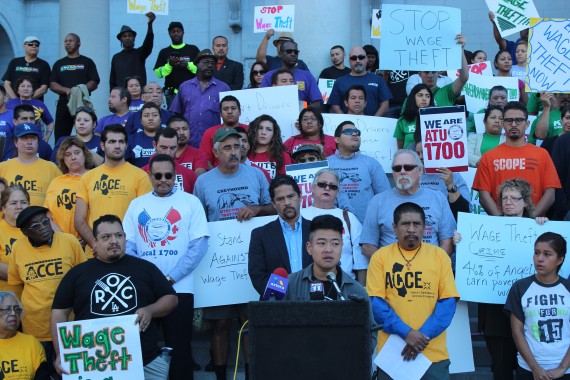Emily Miller is a student at Harvard Law School.
France voted yesterday to elect Emmanuel Macron as its next President, defeating far-right nationalist candidate Marine Le Pen in a run-off election. As the New York Times notes, this is good news for the European Union, as Ms. Le Pen’s victory would have threatened France’s future as a member of the E.U. The E.U., however is, still deeply unpopular in many countries as populist candidates continue to become increasingly popular throughout the bloc. Although Macron has embraced the E.U., he has stated that “we have to listen to our people and listen to the fact that they are extremely angry today, impatient, and the dysfunction of the E.U. is no more sustainable.”
Last week, the House of Representatives passed the Working Families Flexibility Act, a measure which allows employees to offer workers extra comp time rather than extra pay when they log overtime. While Republicans have championed the bill as a move to protect work-life balance, some fear that the trade-off will reduce the FLSA’s disincentives for employers to overwork their employees. Additionally, the bill would shift the control over use of overtime to management, as the bill gives employers leeway to turn down requests to use comp time if it “unduly disrupts the operations of the employer.” According to the the Huffington Post, the White House has indicated that President Trump would sign the bill if it gets to his desk.
A 2015 ordinance raising St. Louis’s minimum wage to $10 per hour went into effect on Friday after a judge lifted an injunction blocking the ordinance. The proposed increase came at a time when cities throughout the country were raising minimum wage levels, and became the subject of a two-year struggle between the City and organizations like the Missouri Retailers Association, who argued that the wage should be uniform across the State. The ordinance significantly increases the minimum wage in St. Louis, currently at $7.70, and is expected to result in immediate raises for 35,000 workers.
Infosys, an Indian company that supplies American companies with foreign technology workers, has announced it will hire 10,000 American workers in the United States over the next two years. But, as this op-ed in the New York Times argues this weekend, the “Hire American” plan may not be the cause for celebration it seems, as such moves by individual companies side-step actual, systematic reforms while creating the appearance of change. What is really needed, the piece argues, is a fair H1-B system, which would require companies seeking foreign workers to prove they tried and were unable to find American workers with the skills needed, require higher wages for H1-B workers so they could not be used as a cheap substitute for American labor, and a more rigorous enforcement system.










Daily News & Commentary
Start your day with our roundup of the latest labor developments. See all
December 13
In today’s News & Commentary, the Senate cleared the way for the GOP to take control of the NLRB next year, and the NLRB classifies “Love is Blind” TV contestants as employees. The Senate halted President Biden’s renomination of National Labor Relations Board Chair Lauren McFerran on Wednesday. McFerran’s nomination failed 49-50, with independents Joe […]
December 11
In today’s News and Commentary, Biden’s NLRB pick heads to Senate vote, DOL settles a farmworker lawsuit, and a federal judge blocks Albertsons-Kroger merger. Democrats have moved to expedite re-confirmation proceedings for NLRB Chair Lauren McFerran, which would grant her another five years on the Board. If the Democrats succeed in finding 50 Senate votes […]
December 10
In today’s News and Commentary, advocacy groups lay out demands for Lori Chavez-DeRemer at DOL, a German union leader calls for ending the country’s debt brake, Teamsters give Amazon a deadline to agree to bargaining dates, and graduates of coding bootcamps face a labor market reshaped by the rise of AI. Worker advocacy groups have […]
December 9
Teamsters file charges against Costco; a sanitation contractor is fined child labor law violations, and workers give VW an ultimatum ahead of the latest negotiation attempts
December 8
Massachusetts rideshare drivers prepare to unionize; Starbucks and Nestlé supply chains use child labor, report says.
December 6
In today’s news and commentary, DOL attempts to abolish subminimum wage for workers with disabilities, AFGE reaches remote work agreement with SSA, and George Washington University resident doctors vote to strike. This week, the Department of Labor proposed a rule to abolish the Fair Labor Standards Act’s Section 14(c) program, which allows employers to pay […]